2026 Author: Priscilla Miln | miln@babymagazinclub.com. Last modified: 2025-01-22 17:55:19
Children are more or less unpredictable even for their parents. Sometimes it seems that the baby is simply uncontrollable and hysterical. However, what was the impetus for this - a disease of the child's central nervous system, psycho-emotional disorders, or just a desire to manipulate?
Illness or personality traits?
If a child is very nervous, then this can affect the quality of life of both him and those around him. This term usually means tearfulness, excitability, sleep problems, disobedience, irritability, hysteria. It is very difficult to make contact with nervous children, since such a baby reacts to any remark or suggestion with violent tantrums and protests. Psychological practice shows that most of the problems lie in improper upbringing in early childhood.
Naughty and nervous children are such intertwined concepts that sometimes it can be difficult to understand the essence of the problem without the help of qualified specialists. Among the most common reasonschildren's disobedience can be distinguished as follows:
- The desire to attract attention. This affects children who are to some extent deprived of parental warmth and affection. The child notices that during the commission of any negative actions, he receives the missing parental emotions, which he uses in the future.
- The desire to be free from the many restrictions set by parents. This applies to those children who are daily subject to strict control.
- Revenge. Children from a very young age can take revenge, and often do it unconsciously. Such behavior may be a response to parental divorce, unfair punishment, broken promises.

Only in last place are disorders of the child's nervous system.
Children's neuroses
The psyche of a small child is very fragile and subject to outside influences. Against the background of numerous prohibitions, stressful situations and lack of attention, neuroses can form. This is a neuropsychiatric disorder, which is characterized by the appearance of unusual psychosomatic and behavioral symptoms. Often, children are nervous precisely because of the occurrence of neuroses.
The peak of the development of the pathological condition is considered to be the age of 5-6 years, when the child begins to behave inappropriately. In some cases, neuroses appear already at the age of 2-3.
Causes of neuroses
Psychologists identify the following prerequisites for the development of a pathological condition:
- traumatic psychesituations (alcohol or drug addiction of one of the parents, divorce, corporal punishment of the child, conflict situations with peers, adaptation to kindergarten or school);
- great fright;
- negative atmosphere between parents;
- the birth of another child in the family.
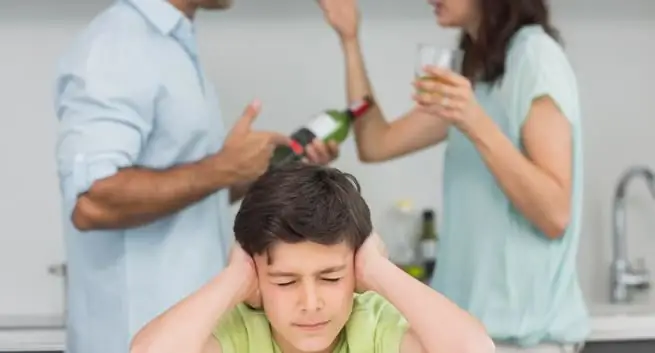
Also, a child of 2 or more years old can become nervous due to the death of one of the relatives, getting into a car accident.
Symptoms of a mental disorder
The first signs of disorders in the nervous system of a child can be considered the following manifestations:
- the emergence of fears and anxiety;
- Insomnia and spontaneous sleep interruptions in the middle of the night;
- restless state;
- unwillingness to communicate with other children, isolation in oneself;
- cough that does not go away for a long period of time;
- urinary and fecal incontinence, especially during sleep;
- stuttering;
- appearance of obsessive movements.
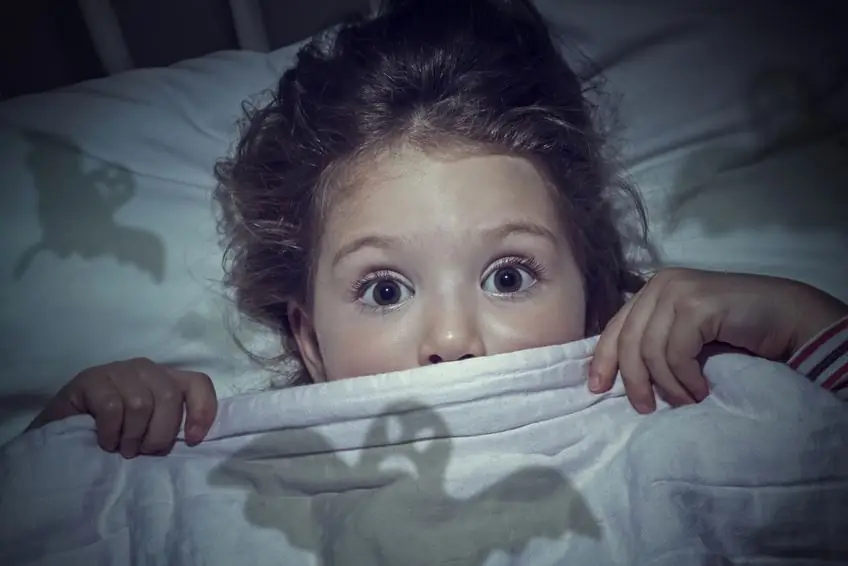
Attentive parents will definitely notice some changes in the behavior of the baby. It can be excessive aggressiveness both towards other children and adults, irritability, hyperexcitability. All these manifestations give rise to an appeal to doctors, since letting the situation take its course can result in negative consequences in the future for both parents and the child.
Treatment of neuroses
Therapyin a pathological state of the nervous system, it is selected in a complex way. It is important to undergo a full examination with a psychologist, neurologist and other related specialists. To date, there are such methods of treating neuroses:
- Psychotherapy is aimed at solving social problems that could cause neurosis. Sessions can take place both with parents and with the child alone. The psychotherapist uses the following techniques for treatment: individual treatment, family session, art therapy, the use of hypnosis, group sessions with children to improve their socialization.
- Drug therapy includes phytopreparations with a calming effect, vitamin complexes, antidepressants, tranquilizers, nootropic drugs. Treatment is selected based on the established severity of the course of the pathological process.
- Folk remedies that are designed to calm the nervous system of a child - infusions of valerian, lemon balm, motherwort.
Communication with animals - dolphins, horses, dogs can be used as an additional therapy.
Nervous tics
Unfortunately, psychological problems do not end with neuroses. Doctors note that every nervous child from 3 to 18 years old can be nervous because of tics. There is evidence that almost one in five children experienced similar phenomena. For convenience, experts have divided the types of nervous tics into 3 groups:
- Motor - lip biting, grimacing, involuntary twitching of the head or limbs.
- Vocal - while the child makes atypical sounds (coughing, howling, sniffing, grunting).
- Ritual - actions include scratching the head, twitching the hair, clenching the jaws.
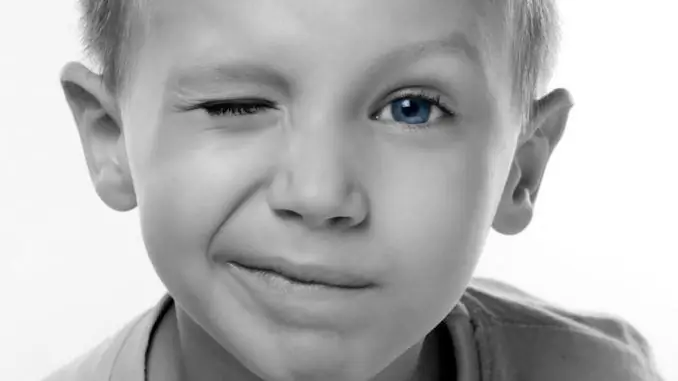
In terms of severity, there are local (one muscle group is involved) and mixed (nervous tics of several types at once).
Causes of nervous tics
Specialists distinguish between primary and secondary pathological conditions. The first group is associated with such factors:
- deficiency in the body of such important trace elements as magnesium and calcium;
- emotional upheaval - stressful situations, severe punishment from parents, fear, lack of love and affection;
- stress on the central nervous system that occurs due to the use of large amounts of tea, coffee, energy drinks. Most often, adolescents from 12 to 18 years old suffer from this;
- overwork due to heavy training loads, prolonged use of the computer, watching TV;
- unfavorable heredity.
Secondary nervous tics can develop against the background of serious diseases, such as:
- Tourette syndrome;
- encephalitis;
- craniocerebral injuries of both closed (concussion) and open types;
- brain tumor;
- congenital diseases of the nervous system.
Most often, nervous tics appear during the wakefulness of the child, while sleep can be called relatively calm.
Therapy for nervoustick
The condition requires medical attention in the following cases:
- nervous tic did not go away on its own within a month;
- pathology causes any inconvenience to the baby;
- severe symptoms or a combination of several types of tics.
In most cases, the treatment of nervous tics in children is easily treatable if their causes were associated with psychosomatics. In more severe cases, the problem may remain forever.
Therapy for a nervous tic of a psychological type is prescribed similar to the treatment of neuroses. It is necessary to choose a complex of soothing medications, as well as conduct several sessions with a qualified psychotherapist. In some cases, alternative treatment is sufficient in the form of soothing tinctures of valerian, lemon balm, motherwort or aromatherapy through baths with essential oils of lavender, mint.
Treatment of secondary tics caused by injuries or diseases should only be started under the supervision of a doctor who will reveal the true diagnosis and prescribe competent therapy.
Rules of conduct for parents
Nervous children are most often the fault of their own mothers and fathers. Psychologists advise that in order to get rid of problems, it is necessary not only to show the baby to a specialist, but also to reconsider your own behavior model:
- It is important to smooth out conflicts that arise during upbringing.
- You should not demand from the child the same love for all relatives. Frequently asked questions about whomore likes the baby is capable of causing nervousness.
- During a divorce, you should create the most comfortable conditions for the baby, in which he will not feel guilty or deprived.
- Don't indulge in all whims, otherwise the child will use manipulation as the only model of behavior in an attempt to achieve his goal.
- Sentences for the child should be reconsidered and perhaps lightened if they were too severe. Also, punishments should be carried out alone with the child, without prying eyes.
- The child's psyche needs to be prepared in advance for the appearance of another family member. The kid must understand that with the birth of a brother or sister, they will not love him less.
- In communication, you should try to be equal with children. No need to try to humiliate or insult them.
- You should take into account the mental and physical capabilities of the child and not demand impossible actions from him.
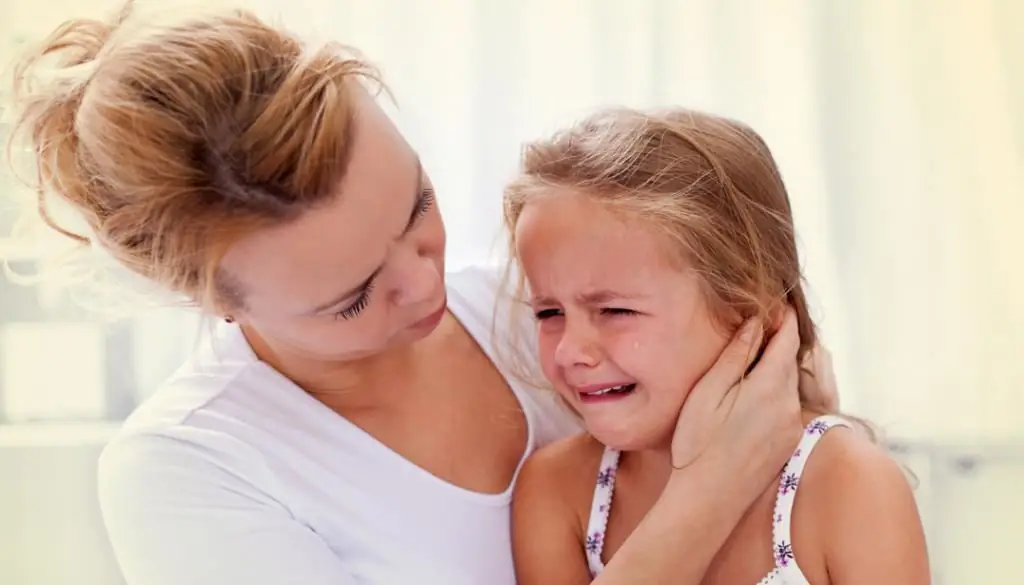
Also, it is important not to show your own negative emotions in front of children, as babies can adopt this behavior.
Daily and nutrition
Nervous child 3 years and older should have a special daily rhythm. Psychologists give several important recommendations on this matter:
- for activities that require mental activity, you need to take breaks for 15 minutes every 20 minutes;
- nutrition should be as balanced as possible to make up for the lack of vitamins and trace elements;
- drinks such as cocoa, coffee, strong tea should be excluded from the diet - theyexcite the nervous system.
You need to spend a lot of time on physiotherapy, such as hardening. However, this should be done under the supervision of a pediatrician.
Age features
Treatment of a nervous child is not always necessary as it may be developmental:
- Until the age of 3, nervousness is caused by innate behavioral characteristics. The situation can be aggravated by the birth of a subsequent child, if the eldest is not yet 3 years old.
- From 3 to 4 years old, children begin to be interested in the world around them, and if the baby receives only the ultimatums of "possible" and "not" without explanation, then this can cause aggression.
- From 5 to 7 years old, it is necessary to stimulate the child's zeal for knowledge, but you cannot force him to do anything.
- From 8 to 10 years of age, consciousness is formed as part of society, so negative behavior may be the result of incorrectly chosen ideals based on school influence.
- From 10 to 16 years old, hormonal changes are observed, which in behavior are expressed as a protest and a desire to stand out. During this period, it is necessary to smooth out conflict situations especially correctly.

Parents should "grow up" with their own child, take into account his characteristics and communicate with him on an equal footing from childhood. This is the only way to maintain trust and peace in the family.
Helpful tips
Nervous child in the year and later can bring a lot of trouble,therefore, it is sometimes easier to prevent the development of mental disorders than to treat them. Psychologists give several recommendations about this:
- Regardless of the situation, it is important to remain calm, as the nervousness of the mother is transmitted to the child, especially for young children;
- it is important to teach your son or daughter to apologize for wrongdoings, but it is just as important to ask for forgiveness from the baby;
- to raise calm offspring, you need to be patient;
- you need to set a positive example with your own actions;
- should not put the interests of the child above all else;
- It is important to give your baby the right to choose.
In addition, children of all ages are in dire need of their parents' care and love.

Conclusion
Nervousness of children is most often associated with mistakes in their upbringing or external factors. Such situations can be easily corrected only by adjusting your own behavior towards the baby. However, when serious mental pathologies are identified, their treatment should not be ignored, as this can turn into serious problems in the future.
Recommended:
My mother-in-law hates me: causes of bad relationships, symptoms, behavior within the family, help and advice from psychologists

Have you ever heard a phrase like this: "If it wasn't for his mom, we would never have broken up"? Surely you have heard, because there are a sufficient number of such pairs. The question is: is it true that a relationship with a mother-in-law can lead to a divorce, or is it just a habit of blaming anyone but yourself for your failures? The situation is rather ambiguous, so it requires more detailed consideration
Why do children bite their nails: causes, possible problems and advice from psychologists
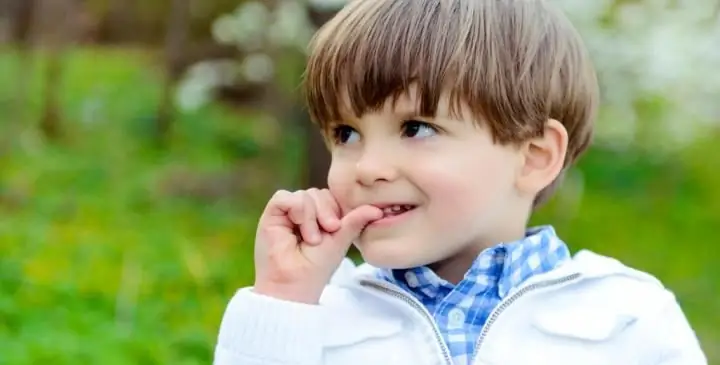
Many parents wonder why children bite their nails. This problem seems intractable, especially when it comes to understanding that simple persuasion does not help. The child acts as if on purpose, contrary to everything that is told to him. Behavior from the outside looks unambiguous and characterizes the child as a sloppy and irresponsible individual. Biting your nails is considered bad manners. Meanwhile, adults should show some wisdom
Husband refuses intimacy: symptoms, possible causes, reaction, advice from psychologists and specialists

In the life of every woman, a turning point can come when a partner begins to behave strangely and refuse intimacy. It doesn’t matter if it’s a husband or a guy, because the girl will first of all think about betrayal and the appearance of someone else in the relationship. But do not sound the alarm and collect documents for a divorce. Let's find out why the husband refuses intimacy, what are the reasons for this and how to deal with it
Inflammation of the gums during pregnancy: symptoms, possible causes, necessary treatment, the use of safe and gynecologically approved drugs, advice and recommendations from denti

Inflammation of the gums during pregnancy is a very common occurrence that should never be ignored. The main causes of this disease are stressful situations, insufficient amounts of nutrients in the body, vitamins, and other factors
Swollen gums during pregnancy: causes, symptoms, doctor's advice, safe medical and folk treatments

Often, expectant mothers are interested in what to do if the gums are swollen during pregnancy. What to do in this case? The older generation often dissuades them from going to the doctor. According to them, visiting the dentist during pregnancy can be dangerous. However, their opinion is wrong. In the past, when obsolete drugs were used for pain relief, dental treatment during pregnancy was really undesirable

